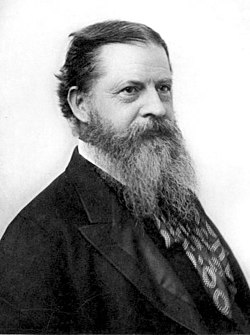| Part of a series on |
| Charles Sanders Peirce |
|---|
 |
| Pragmatism in epistemology |
| Logic |
| Semiotic theory |
| Miscellaneous contributions |
| Biographical |
The pragmatic maxim, also known as the maxim of pragmatism or the maxim of pragmaticism , is a maxim of logic formulated by Charles Sanders Peirce. Serving as a normative recommendation or a regulative principle in the normative science of logic, its function is to guide the conduct of thought toward the achievement of its purpose, advising on an optimal way of "attaining clearness of apprehension". Here is its original 1878 statement in English [1] when it was not yet named:
It appears, then, that the rule for attaining the third grade of clearness of apprehension is as follows: Consider what effects, that might conceivably have practical bearings, we conceive the object of our conception to have. Then, our conception of these effects is the whole of our conception of the object.
- (Peirce on p. 293 of "How to Make Our Ideas Clear", Popular Science Monthly, v. 12, pp. 286–302. Reprinted widely, including Collected Papers of Charles Sanders Peirce (CP) v. 5, paragraphs 388–410.)